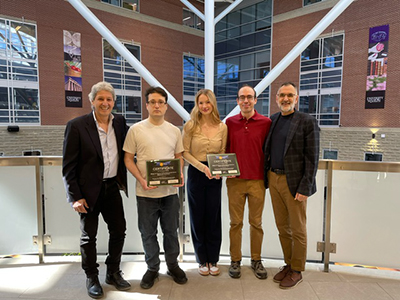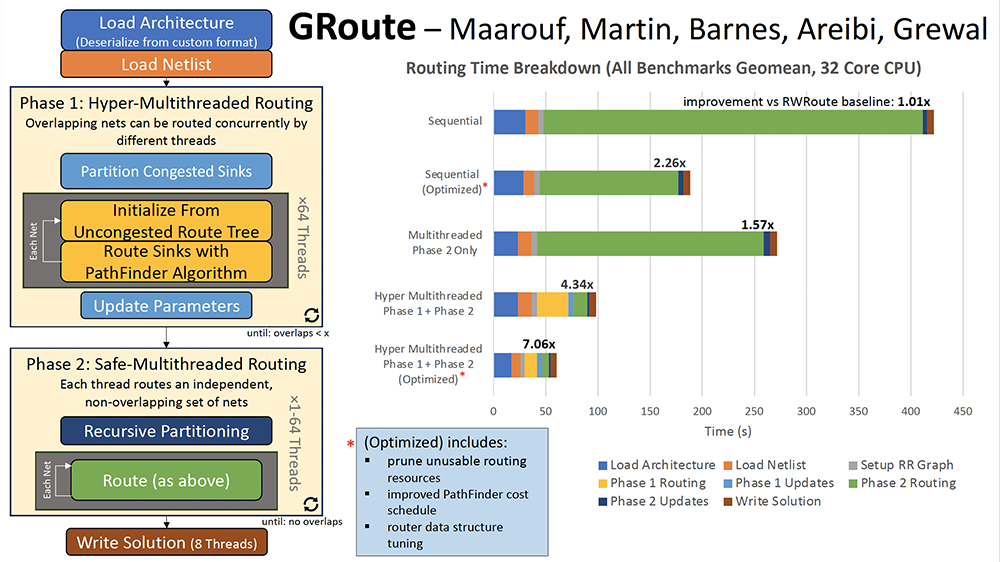CEPS Students Win Prestigious International Routing Contest
A team of students at the University of Guelph have won the 2024 Runtime-First FPGA Interchange Routing Contest. Teammates Charlotte Barnes, Dani Maarouf and Timothy Martin in the College of Engineering and Physical Sciences, and members of the Guelph FPGA CAD Group, won with their solution, GRoute. The team was supervised by Drs. Shawki Areibi and Gary Grewal.
Field Programmable Gate Arrays (FPGAs) are integrated circuits composed of programmable logic blocks and interconnects that can be configured to implement any digital hardware circuit. Today, FPGA technologies are being used to implement a wide range of applications that are revolutionizing society, including accelerating 4K workloads in data centers, performing sensor fusion and object detection in autonomous vehicles, and enabling efficient medical imaging and gene processing, among many others. FPGAs, however, face their own challenges. As FPGA applications and devices grow in size and complexity, so does the time to map a circuit design onto an FPGA. Large, industrial designs can easily take months to successfully implement on an FPGA, thus limiting their time-to-market advantage over other hardware technologies and their full deployment.
In 2024, Advanced Micro Devices (AMD) – the world’s largest FPGA vendor – inaugurated the Runtime-First FPGA Interchange Routing Contest. The primary goal of the contest was to encourage innovation leading to an improvement in FPGA routing runtimes. Routing is a classic problem in the FPGA work flow that involves routing the millions of signals required to connect the various hardware components on the FPGA. Routing directly impacts the performance of the software design tools, and accounts for up to 85 per cent of the total time in the FPGA design flow.
Over 40 international university and research teams competed in the contest for five top awards. The top five teams were then invited to attend ISFPGA 2024 in Monterey, California, where the contest winners were announced. The winning U of G team's routing tool, called Groute, performed 2.67x faster than the second place router, and over 4x faster than Vivado 2023.2 – AMD’s commercial tool. To support world-wide research in the area of FPGA routing, the Guelph team has decided to make GRoute freely available under an open-source license. Also, the team is currently discussing future collaboration opportunities directly with AMD.
A team representative travelled to the awards ceremony in California to accept the award on U of G's behalf. Their winnings came with a prize of $2,500USD.

